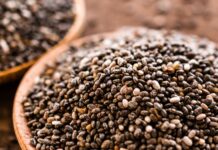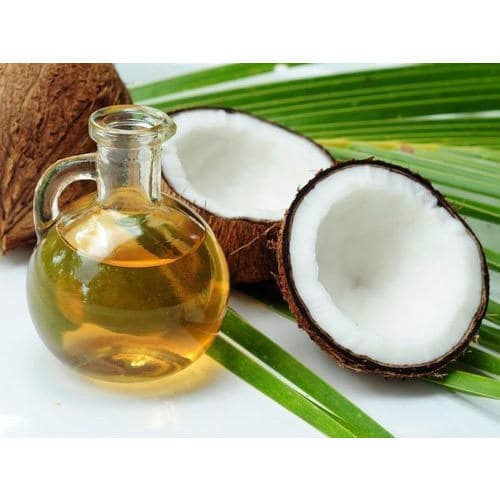In recent years coconut oil has grown its popularity among beauty brands, that started to incorporate it into their products, especially hair care products. But have you ever wondered
what makes coconut oil so special and effective in treating hair? Well, in this article we’ll discuss the different benefits of coconut oil for hair and how you can use it in your daily hair care routine.
What is coconut oil?
Coconut oil is extracted from the kernel of mature nut harvested from coconut trees, which grows naturally in coastal and tropical regions of the world. Coconut oil is rich with minerals, vitamins, and fatty acids that have many health benefits, in fact, coconut oil has been used for ages in Asia for different natural beauty treatments, including for treating dry and damaged hair.
5 benefits of coconut oil for healthy hair growth
Moisturize hair and combat frizz: Coconut oil is rich with lauric acid, which is a lightweight acid that hydrates and deep conditions the hair fiber from within. Coconut oil also retains moisture and restores hair’s natural oil balance and pliability, which results in frizz-free, softer and shinier hair.
Improve scalp health: Coconut oil have antimicrobial and antiviral properties, that can fight harmful microorganisms, viruses, and fungi. These properties make coconut oil effective in cleaning the scalp and restoring its health by treating scalp irritations, infections, and even dandruff.
Prevents hair thinning and loss: The lauric acid and other medium-chain fatty acids, that are found in coconut oil, can easily penetrate the hair shaft and nourish it. This makes the hair shafts and roots stronger and less prone to breakage, split ends and hair thinning. Coconut oil also effective in reducing protein loss from the hair shaft, which causes both unhealthy hair and hair loss. The presence of vitamin E and K in coconut oil also ensures healthier hair growth and less hair breakage.
Protects hair from UV damage: A pharmacognosy research has found that coconut oil has a natural SPF of ~8, which makes it one of the most effective natural oils against the harmful UV rays. In fact, using coconut oil on your hair before going out in the sun, will deeply moisturize your hair and will block 20% of the harmful sun’s rays that can cause dry and dull hair.
Lice treatment and prevention: Coconut oil is high in saturated fat, which makes it viscous and effective in suffocating and killing head lice. The thick consistency of coconut oil prevents lice from transferring onto clothing and stops them from spreading to other people. The fatty acids, that are found in coconut oil, lubricate the hair strands, making it smooth and slippery, and much difficult for the lice to grasp.
How to use coconut oil for healthy hair growth
There are many ways you can use coconut oil on your hair, and you probably stumbled across some homemade hair products recipes that include coconut oil. Although those recipes might be great, they are usually complicated and require many ingredients. Luckily there are three easy ways you can incorporate coconut oil in your hair care routine:
- Leave-in conditioner and styling – Adding a small amount of coconut oil to your hair will help you tame frizz and add moisture and shine to your strands.
How to use it:
- Scoop between ¼ to ½ teaspoon of organic virgin coconut oil (depending on the length of your hair).
- Warm the oil by rubbing it in the palm of your hands.depending on the length of your hair).
- Rub the oil onto damp hair and concentrate at applying it to the ends of your hair.
Continue with your regular hairstyling routine.
- Deep hair mask – If you wish to give your strands an extra boost of hydration, coconut oil is a great option for deep conditioning overnight hair mask.
How to use it:
- Scoop between 1 to 3 tbs of organic virgin coconut oil (depending on the length of your hair).
- If the oil is in a solid-state, warm it in a microwave for a few seconds to convert it to liquid.
- Apply evenly over dry hair.
- Put your hair in a fabric shower cap and leave it for at least 5 hours (or overnight).
- Wash your hair thoroughly with your regular shampoo.
- Use coconut oil hair products – If you’re not in the mode of changing or adding steps to your hair care routine, you can simply buy hair products that contain coconut oil in them. Beauty brands acknowledge the benefits of coconut oil, which is why many of them produce hair products made of coconut oil. So nowadays, it’s easier than ever to find coconut oil based shampoo, conditioner, and any other hair product you might need in your hair care routine.
Final Word
Coconut oil has many health benefits, which makes it ideal for both damaged and undamaged hair. Incorporating coconut oil in your daily hair care routine is also very affordable and easy, so give it a try and start to enjoy its wonderful benefits.
Author bio:
Helen is the founder and the editor of hairtipsntricks.com. The site provides a detailed review of the latest hair products on the market as well as tips and tricks for healthy hair care and styling.































